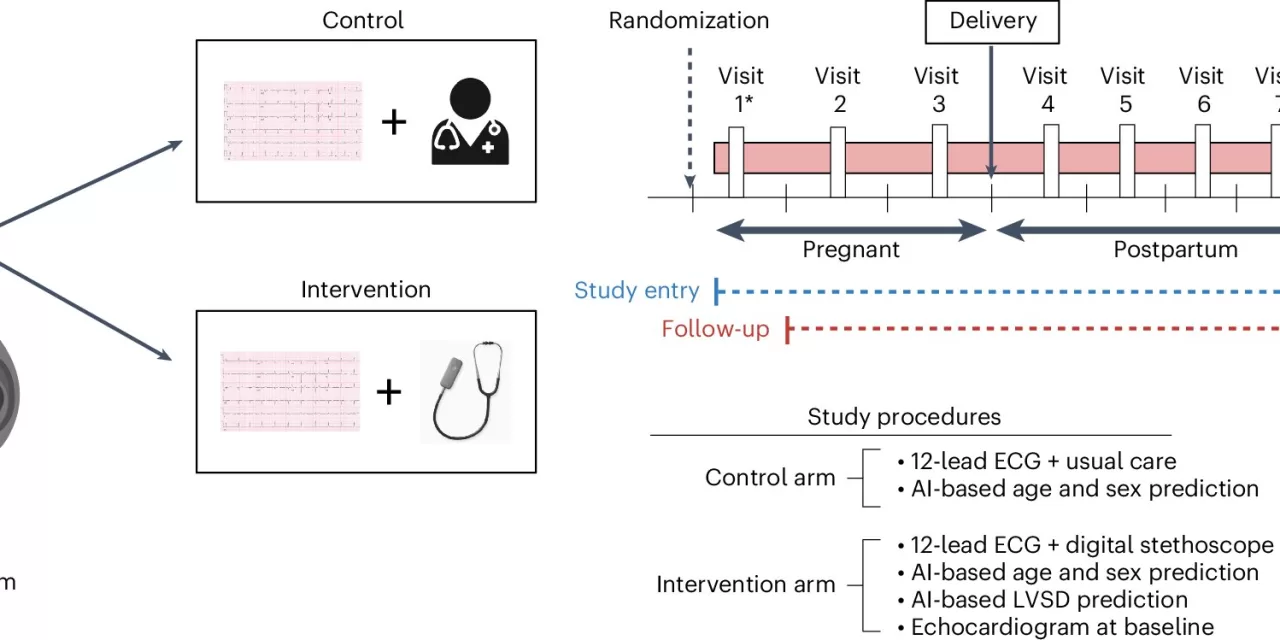European Society of Cardiology Congress Reports Promising Results from Mayo Clinic Study
Heart failure during pregnancy, a potentially life-threatening condition often mistaken for typical pregnancy discomforts, has been significantly under-detected due to the overlapping symptoms of shortness of breath, extreme fatigue, and trouble breathing while lying down. However, groundbreaking research presented at the European Society of Cardiology Congress reveals that an artificial intelligence (AI)-enabled digital stethoscope has dramatically improved detection rates of this critical condition.
The study, conducted by Mayo Clinic researchers in Nigeria—a country with one of the highest rates of pregnancy-related heart failure—demonstrates that the AI-enabled digital stethoscope identified twice as many cases of heart failure compared to traditional obstetric care and screening methods. The findings, detailed in the latest issue of Nature Medicine, underscore the significant potential of AI technology in enhancing diagnostic accuracy.
The trial, involving nearly 1,200 participants, compared outcomes between standard obstetric care and advanced AI-based screening using a digital stethoscope integrated with a 12-lead electrocardiogram (ECG) algorithm. This algorithm, developed by Mayo Clinic and further enhanced by Eko Health, is FDA-cleared to detect heart failure with low ejection fraction—a key marker of heart pump weakness.
“The ability to recognize heart failure early in pregnancy is crucial for the mother’s health and safety,” said Dr. Demilade Adedinsewo, a cardiologist at Mayo Clinic and lead investigator of the study. “Symptoms of peripartum cardiomyopathy, a severe form of heart failure occurring late in pregnancy or after childbirth, can worsen rapidly and pose significant risks if not addressed promptly. Early detection can lead to timely medical intervention, including medication, intensive care, or even heart transplantation if necessary.”
The AI-enabled stethoscope proved to be 12 times more effective than traditional screening methods in detecting heart pump weakness when evaluated at an ejection fraction threshold lower than 45%, which is critical for diagnosing peripartum cardiomyopathy. The study also highlighted the tool’s efficacy in detecting heart failure with reduced ejection fraction and severe heart pump function impairment.
Patients in the intervention group received echocardiograms to confirm the AI predictions, ensuring accurate assessment and management of their condition. The researchers found that the AI-based screening not only identified cases of low ejection fraction more accurately but also highlighted the potential for better management of severe heart failure cases.
Dr. Adedinsewo noted, “While this study shows promise for improving detection of peripartum cardiomyopathy in Nigeria, our next steps will involve evaluating the usability and adoption of this tool by healthcare providers and its impact on patient outcomes. Given that peripartum cardiomyopathy affects approximately 1 in 2,000 women in the U.S. and up to 1 in 700 African American women, testing this AI tool in various populations and healthcare settings will be essential for assessing its broader applicability.”
For more information on this study, refer to the publication: Demilade A. Adedinsewo et al, “Artificial intelligence guided screening for cardiomyopathies in an obstetric population: a pragmatic randomized clinical trial,” Nature Medicine (2024). DOI: 10.1038/s41591-024-03243-9.












